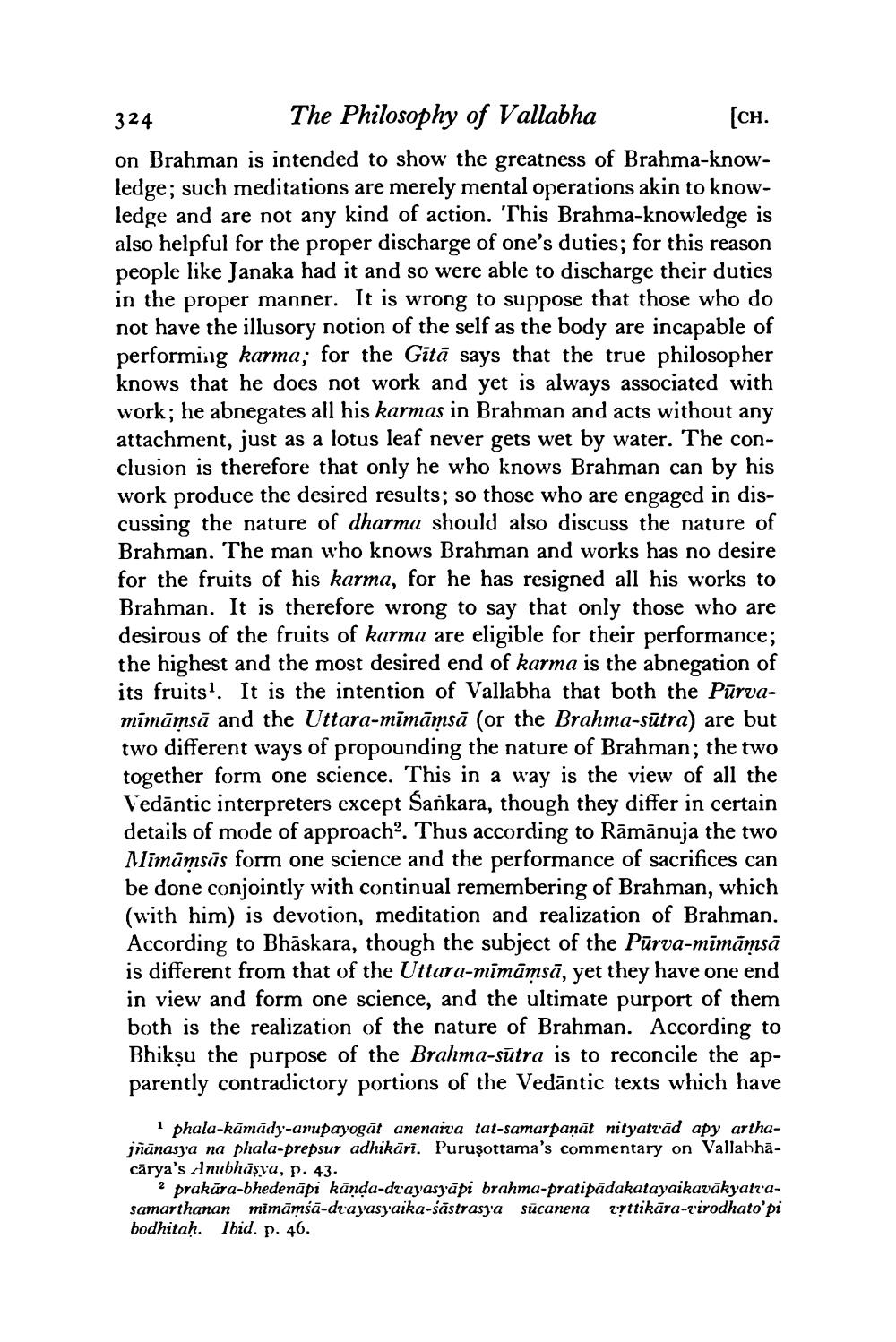________________
324 The Philosophy of Vallabha
fch. on Brahman is intended to show the greatness of Brahma-knowledge; such meditations are merely mental operations akin to knowledge and are not any kind of action. This Brahma-knowledge is also helpful for the proper discharge of one's duties; for this reason people like Janaka had it and so were able to discharge their duties in the proper manner. It is wrong to suppose that those who do not have the illusory notion of the self as the body are incapable of performing karma; for the Gitā says that the true philosopher knows that he does not work and yet is always associated with work; he abnegates all his karmas in Brahman and acts without any attachment, just as a lotus leaf never gets wet by water. The conclusion is therefore that only he who knows Brahman can by his work produce the desired results; so those who are engaged in discussing the nature of dharma should also discuss the nature of Brahman. The man who knows Brahman and works has no desire for the fruits of his karma, for he has resigned all his works to Brahman. It is therefore wrong to say that only those who are desirous of the fruits of karma are eligible for their performance; the highest and the most desired end of karma is the abnegation of its fruits. It is the intention of Vallabha that both the Pūrvamimāmsā and the Uttara-mināmsā (or the Brahma-sūtra) are but two different ways of propounding the nature of Brahman; the two together form one science. This in a way is the view of all the Vedāntic interpreters except Sankara, though they differ in certain details of mode of approach. Thus according to Rāmānuja the two Mlīmāmsās form one science and the performance of sacrifices can be done conjointly with continual remembering of Brahman, which (with him) is devotion, meditation and realization of Brahman. According to Bhāskara, though the subject of the Pūrva-mīmāmsā is different from that of the Uttara-mīmāmsā, yet they have one end in view and form one science, and the ultimate purport of them both is the realization of the nature of Brahman. According to Bhikṣu the purpose of the Brahma-sūtra is to reconcile the apparently contradictory portions of the Vedāntic texts which have
i phala-kāmādu-anupayogāt anenaita tat-samarpanāt nityatrād apy arthajñānasya na phala-prepsur adhikāri. Puruşottama's commentary on Vallabhācārya's Anubhāśva, p. 43
? prakāra-bhedenāpi kānda-drayasyāpi brahma-pratipādakatayaikavākyatrasamarthanan mimāmsā-drayasyaika-śāstrasja sūcanena yrttikara-tirodhato'pi bodhitaḥ. Ibid. p. 46.




